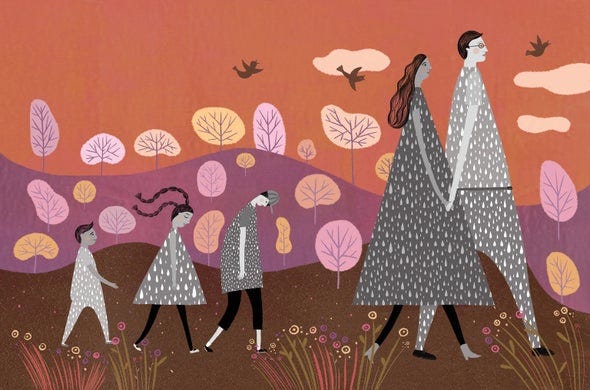Small Talks, No. 96
February 24, 2023
Welcome to the ninety sixth edition of Small Talks. Every Friday, I highlight 6 areas of weekly joys and reflections in early childhood and the whole family. Small Talks leverages my experience at the intersection of education, philanthropy, and impact investing. Enjoy!
What I’m celebrating -
This week is dedicated to the burgeoning field of social epigenetics. For a long time, the debate on what drives who we are, and specifically what leads to learning and well-being outcomes, was focused on nurture vs. nature. The emerging science of epigenetics makes the nurture vs. nature debate obsolete. It shows that the environment actually alters the genes. It is no longer nurture vs. nature, but how nurture influences nature over time, and over generations.
While this important body of research can be doom and gloom, essentially showing the impact of trauma is multi-generational, there is side of this research that I find particularly inspiring. We are starting to understand that rich and nurturing environments can alter genes for the positive and cancel the negative effects of trauma. In particular, environments that stimulate senses and engage more of youth brains in play and exploration can revert these negative impacts.
Good primer by the Harvard Center on the Developing Child here.
The pioneers in this field are based at McGill University: Michael Meaney, neurobiologist and clinical psychologist, and Moshe Szyf, professor of pharmacology and therapeutics. In 2004, they published a series of seminal (and controversial) papers showing that the quality of care that rats receive from their mothers early in life can alter the molecular components in the DNA – and be inherited by their children. Read more here. Washington State University Professor Michael Skinner's research in animals also suggests changes to the epigenome can be passed down through multiple generations.
Researchers from the University of Pennsylvania have since shown that epigenetic markers can be transmitted through two generations of rodents.
On the inspiring side, read about Professor Mansuy’s research and the evidence she is uncovering on how traumatized mice raised in enriched environment do NOT pass the symptoms of trauma to their offspring.
What about humans? Lots of research activity going on, and I will highlight a few only:
Rachel Yehuda, Professor of psychiatry and neuroscience at Mount Sinai Medical Centre in New York, has studied pregnant moms exposed to 9/11 traumatic events, and showed that babies exposed during pregnancy had lower levels of cortisol and higher stress responses- especially if trauma occurred in the third trimester. Please read more about her work from her directly here in this piece “How Parents’ Trauma Leaves Biological Traces in Children.”
Epigenetics is also analyzing the long-term effects of poverty. According to a study by researchers at University College London’s Institute of Child Health, children born to families who have lived generations in poverty inherit genes configured to help them survive that poverty, but making them more susceptible to health conditions like heart disease, diabetes and cancer when they’re adults.
What I’m listening to -
This incredible episode of OnBeing podcast with Rachel Yehuda on how trauma and resilience are passed on generations.
What I’m reading -
Neurobiology and the Development of Human Morality: Evolution, Culture, and Wisdom
What I’m watching -
Recommend this TEDTalk by one of the “fathers” of social epigenetics.
What I’m learning more deeply -
A quote I’m pondering -
From Le Petit Prince by Antoine de Saint-Exupéry.
Feedback is a gift. Which part above is your favorite? What did I miss? What do you want more or less of? Other recommendations? Please kindly let me know. Thank to all of you who are sending me amazing suggestions.
If you enjoy this newsletter, please help spread the word by sharing with your friends, colleagues, and networks.
Have a wonderful week. Please stay safe and care for each other.
Isabelle





Thank you for another great issue! So many fascinating studies you’ve shared